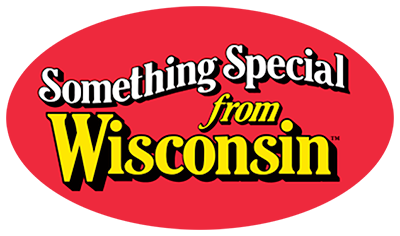The Role of Blogs in Driving SEO Success
By Tyler Van Kleef - Digital MarketerPosted on May 14, 2025

In the dynamic world of digital marketing, blogs remain a cornerstone for search engine optimization (SEO) success. As an advertiser, understanding how blogs contribute to SEO can help you craft strategies that increase visibility, drive organic traffic, and ultimately boost conversions. Here’s a closer look at why blogs matter for SEO and how you can leverage them effectively.
Why Blogs Are Crucial for SEO
1. Fresh and Relevant Content
Search engines prioritize websites that consistently provide fresh and relevant content. Blogs allow you to update your website regularly, keeping it active and engaging for both search engines and users.
2. Keyword Optimization
Blogs provide a platform to target a variety of keywords, including long-tail keywords that capture specific user intent. By incorporating strategic keywords into blog content, advertisers can improve their website’s search engine rankings.
3. Improved Site Structure
Blogs contribute to a well-structured website by offering internal linking opportunities. Linking blog posts to related pages or other blogs on your site enhances navigation, boosts user experience, and helps search engines understand your site’s structure.
4. Increased Backlink Potential
High-quality blog content attracts backlinks from other websites. These backlinks act as endorsements, signaling to search engines that your content is authoritative and valuable.
5. Enhanced User Engagement
Informative and engaging blogs encourage visitors to spend more time on your site, reducing bounce rates. Search engines interpret this behavior as a sign of valuable content, which can positively impact your rankings.
How Blogs Drive SEO Success
1. Addressing User Queries
Blogs provide an opportunity to answer common questions and solve problems for your audience. By aligning content with user intent, you can attract targeted traffic and improve your site’s relevance.
2. Showcasing Expertise
Regularly publishing blogs on industry trends, tips, and insights establishes your brand as an authority. This builds trust with your audience and increases the likelihood of them returning to your site.
3. Optimizing for Featured Snippets
Blogs structured with clear headings, bullet points, and concise answers can increase your chances of appearing in featured snippets. These coveted positions drive significant traffic and boost your site’s credibility.
4. Leveraging Multimedia
Incorporating images, videos, and infographics into your blogs enhances engagement and improves SEO. Optimized multimedia content can also appear in image or video search results, broadening your reach.
Best Practices for Blog-Driven SEO Success
1. Conduct Thorough Keyword Research
Identify keywords that resonate with your target audience and incorporate them naturally into your blog titles, headings, and body content. Use tools like Google Keyword Planner to find relevant keywords.
2. Create High-Quality Content
Focus on creating content that is informative, engaging, and tailored to your audience’s needs. Avoid keyword stuffing and prioritize readability.
3. Optimize Meta Tags
Craft compelling meta titles and descriptions for each blog post. These elements influence click-through rates and help search engines understand the context of your content.
4. Include Internal and External Links
Internal links guide readers to related content on your site, while external links to authoritative sources add credibility to your blogs. Both practices improve SEO and user experience.
5. Promote Your Blogs
Share your blog posts on social media, email newsletters, and other digital channels to increase visibility and drive traffic. More visibility increases the likelihood of earning backlinks and social shares.
6. Monitor and Update Content
Regularly analyze your blog’s performance using tools like Google Analytics. Update outdated content with new information to maintain its relevance and SEO value.
Measuring the Impact of Blogs on SEO
To assess the effectiveness of your blog strategy, track key performance indicators (KPIs) such as:
• Organic Traffic: Measure the number of visitors arriving through search engines.
• Keyword Rankings: Monitor how well your target keywords perform in search results.
• Engagement Metrics: Analyze time on page, bounce rates, and pages per session.
• Backlink Growth: Track the number and quality of backlinks your blogs earn over time.
Blogs are an indispensable tool for driving SEO success. They provide a platform for fresh content, keyword optimization, and audience engagement, all of which contribute to improved search engine rankings and increased visibility. By investing in a wellplanned blog strategy, advertisers can create lasting value for their brand and establish a strong online presence. The role of blogs in SEO is clear—they’re not just content; they’re a vehicle for growth.

